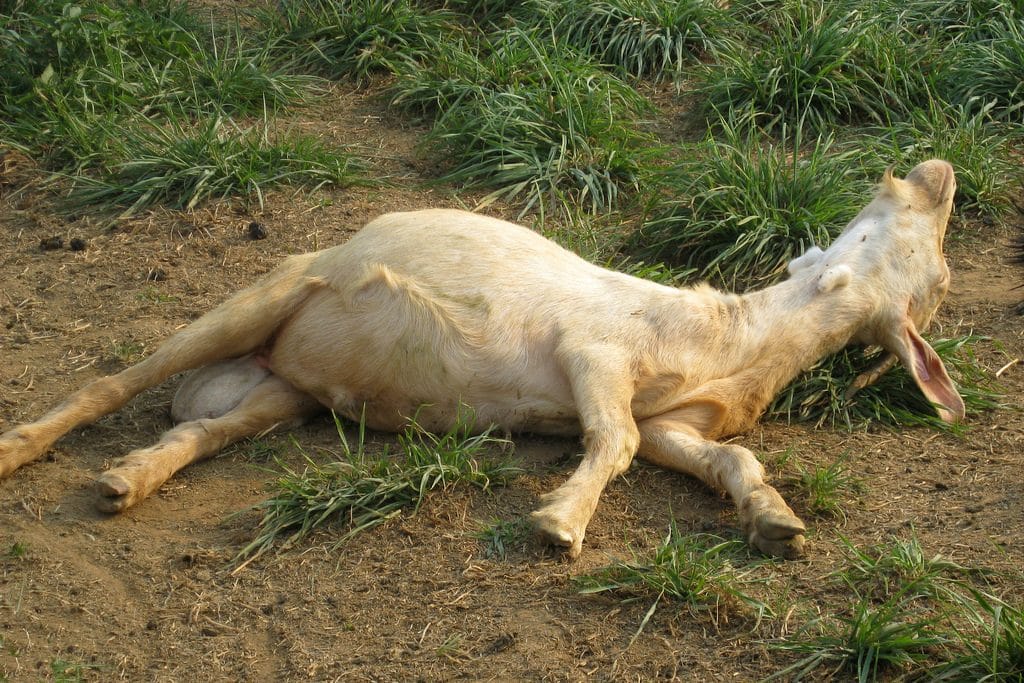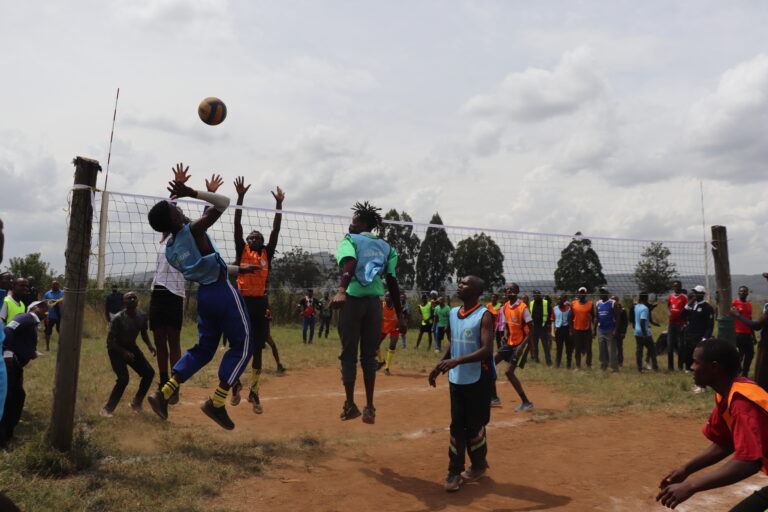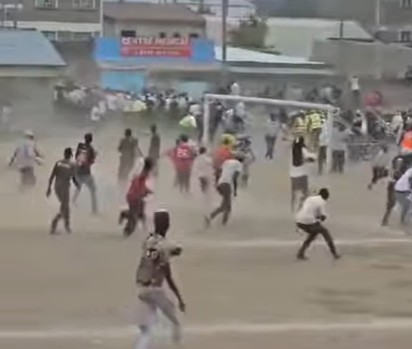
An affected sheep in North Horr after an attack of the unknown disease. Photo: BHB Chalbi FM.
Residents Burarat village of Maikona Ward in North Horr Constituency have raised concerns after an unknown disease attacks their livestock.
The fear from residents follows a major loss experienced in May, when the area was infested with unspontaneous attacks from tribal clashes, which saw a section losing not only their animals to unknown attacks and their properties destroyed.
Barille Guyo who addressed journalists, a majority of residents explained that the residents have noticed signs that happen suddenly driving the animals to go weak.
“There is an unknown disease that has affected a number of animals in the area, that we cannot clearly tell what it is. Our animals are growing weak daily and the disease immediately weakens them,” Guyo said.
According to Guyo, the commonly reported signs that have been noticed include signs similar to the delay Foot and Mouth Disease (FMD), running nose, coughing and diarrhea. Guyo said the residents more worry is failure to understand if the unknown disease is communicable.
“Some are likening the observable symptoms to FMD, while others are saying the animals are coughing persistently, diarrhea, and a running nose. Wasiswasi yetu ni kwamba hatuelewi kam hii ugonjwa inaweza samba kwa wale ambao hawajaadhiriwa,” Guyo explained.
The alarms comes a month after the Marsabit County Disaster and Drought Management Authority (NDMA), said that the livestock situation in most areas of the county was satisfactory, with livestock in good physical condition.
According to the Authority, milk production increased more slightly than usual, and residents had stopped moving for long distances in search of food for their livestock. NMDA however acknowledged that North Horr had reported cases of CCPP, and Peste des Petits Ruminants (PPR) in goats and sheep.
In 2024, President William Ruto had announced a national wide vaccination to cushion livestock against instances of attack by FMN, PPR, CCPP, among others, but the program received massive criticism from Kenyans who demanded an open and transparent explanation to the much popularized program by government allies.




